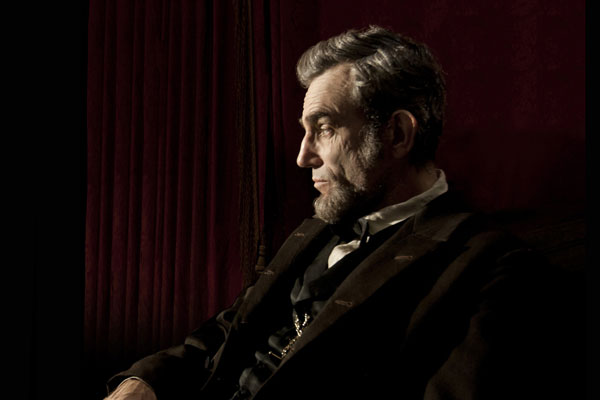Lincoln: The Movie, the Man
Julia Shaw /

Daniel Day-Lewis stars in the new movie “Lincoln” directed by Steven Spielberg. Photo: DreamWorks II Distribution Co., LLC.
Steven Spielberg’s Lincoln debuts in Washington, D.C., this week.
It features a stellar cast: Tommy Lee Jones, David Strathairn, Sally Field, and Daniel Day-Lewis as our nation’s 16th President.
Day-Lewis is known for method acting. But which Lincoln will he portray? Will he play into the liberal myth of Lincoln as “the father of big government”? Will he reflect an equally pernicious stereotype: a tyrant who supposedly deprived Southern sympathizers of civil rights? Or will Hollywood manage to show us the real Lincoln, a man who stood up for limited, constitutional government?
The script is based on Doris Kearns Goodwin’s book Team of Rivals: The Political Genius of Abraham Lincoln. But screenwriter Tony Kushner (of Angels in America and Munich fame) persuaded Spielberg to focus on the Thirteenth Amendment. Ah, so Day-Lewis will be the “Great Emancipator.”
“I have always hated slavery,” Lincoln repeatedly said. “If slavery is not wrong, nothing is wrong.”
Slavery was also contrary to “the leading principle—the sheet anchor of American republicanism.” Lincoln described the Declaration of Independence in his typical, colorful terms. It was, he said, an apple of gold, while the
Union, and the Constitution, are the picture of silver, subsequently framed around [the apple]. The picture was made, not to conceal, or destroy the apple; but to adorn, and preserve it. The picture was made for the apple—not the apple for the picture. So let us act, that neither picture, or apple, shall ever be blurred, or bruised, or broken.
That is, the core of America is the principle of human equality articulated in the Declaration of Independence. The Constitution exists to preserve and facilitate the equality principle by protecting it in the rule of law.
Thus, Lincoln recognized that the Constitution set forth a framework of limited government. He could not do everything he desired—such as abolishing slavery. Many took him to task for that. Abolitionists, Lincoln noted, “seemed to think that the moment I was president, I had the power to abolish slavery, forgetting that before I could have any power whatsoever I had to take the oath to support the Constitution of the United States and execute the laws as I found them.”
Lincoln’s nearly impossible task was to guide the nation through a bloody civil war that would eradicate the evil of slavery and mold the North and South into “a more perfect Union.” Should he have allowed the Union to fall apart and potentially condemn the continent to the petty wars of confederacies? Should Lincoln have maintained the Union but surrendered the constitutional republic?
“When the time came for Lincoln as Chief Executive to preserve and protect the Constitution,” explained historian Herman Belz, “his great and essential contribution was to make moral and philosophic distinctions concerning the meaning of liberty, equality, and republican government that restored the authority of the Founding.”
Here’s what Lincoln did: On January 1, 1863, acting on his authority as commander in chief, Lincoln issued the Emancipation Proclamation, which freed the slaves in rebel states. This proclamation did not abolish slavery everywhere, nor did it “repeal state constitutions and laws establishing slavery.” But it was a tremendous act of statesmanship that paved the way for the Thirteenth, Fourteenth, and Fifteenth Amendments.
The Thirteenth Amendment eradicated the vicious institution of slavery and vindicated the equality principle at the heart of the Declaration. The Fourteenth Amendment performed many feats: affirming the citizenship of the newly freed men and women, guaranteeing them the protection of the rule of law, clarifying the status of political leaders from rebel nations, and repudiating the Confederate war debt. The Fifteenth Amendment ensured that the right to vote would not be abridged on account of race. Congress received the power to enforce these amendments (a power it refused to exercise for some time, but that’s another story).
Day-Lewis may capture the gawky walk, looming height, and knitted brow of the man who knew the future of the republic rested on his actions, but let’s be clear: The true legacy of Lincoln is not simply that he ended slavery. It’s that he ended slavery while preserving the Constitution and the Union. He completed the Founding by vindicating the apple of gold without smashing the frame of silver in the process.
